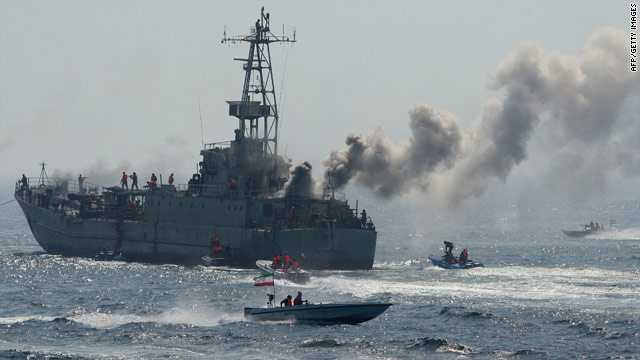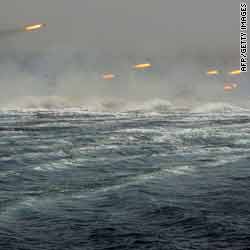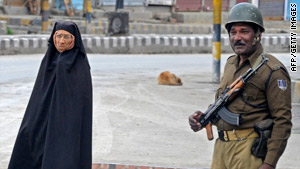While any win above 3,000 votes for Pakatan Rakyat would have meant gains in non-Malay votes while preserving their slim Malay popularity. Instead, the 1,725 majority picked up by MIC’s compromise candidate P Kamalanathan neither proves that BN is back in favour nor PKR’s Datuk Zaid Ibrahim was soundly rejected.
By Chan Kok Leong, The Edge
By-elections are very different from a general election.
Although it is sometimes indicative of the sentiments, by-elections bear their own histories, with wants and needs that differ from place to place. It is not an accurate premonition of the general election to come.
In fact, it can be totally opposite of the local sentiments.
The Ijok by-election in April 2007 was a good example of how local needs took precedence and portrayed a warped view of what was in store in the next general election.
After picking a relative unknown from MIC K Parthiban by giving him a 1,850-vote majority, the same voters returned the favour to PKR candidate, Tan Sri Khalid Ibrahim, who lost 11 months earlier, with a 1,920-vote majority in the 12th general election (GE).
Practicality ruled the day in Ijok as voters decided to accept any goodies that Barisan Nasional (BN) could dish out or promised to give for the remaining electoral months before shutting off Parthiban’s replacement from Umno Datuk Mohamed Sayuti Said in favour of Khalid.
With a little more than two years to go before the 13th GE, it looks like Hulu Selangor also chose to settle local governance issues and collect on old debts before deciding again on April 25.
Barring huge majorities for either coalition, it is hard to say that the popularity of either BN or Pakatan Rakyat has improved by much ever since the last general election.
For BN, a huge majority means a return to the 10,000-vote margins it used to enjoy prior to the 2008 GE. In 2004, MIC deputy president Datuk G Palanivel beat PAS’ Datuk Ismail Kamus by 14,483 votes.
While any win above 3,000 votes for Pakatan Rakyat would have meant gains in non-Malay votes while preserving their slim Malay popularity. Instead, the 1,725 majority picked up by MIC’s compromise candidate P Kamalanathan neither proves that BN is back in favour nor PKR’s Datuk Zaid Ibrahim was soundly rejected.
In the last GE, the combined majority enjoyed by BN in the three state seats — Hulu Bernam, Kuala Kubu Baru and Batang Kali — was 6,176 votes while parliamentary seat incumbent Datuk G Palanivel lost by 198 votes to PKR’s Datuk Dr Zainal Abidin Ahmad.
Nevertheless, a string of by-election trends put together paint a very different picture.
Notwithstanding Permatang Pauh, Batang Ai and Bagan Pinang, where the presence of a local hero or postal votes overwhelmed the results, the other six by-elections showed a trend among non-Malay voters.
Other than in Kuala Terengganu, where the local MCA was helmed by the state’s sole Chinese assemblyman and executive councillor Toh Chin Yaw, the other five by-elections saw a continuing flight of non-Malay voters to the opposition. The biggest jump was among the Chinese, which saw at least 15% improvements for Pakatan Rakyat.
On the other hand, since the by-election in Bukit Gantang and Manek Urai, Malay voters have slowly begun to shift back to BN by around 3%-5%.
Using samplings from four Malay, Chinese and Indian-majority polling stations, Hulu Selangor backed the trend of Chinese voters pulling further away from BN while Malay voters are returning to the fold. Indian voters, however, showed a shift back to BN albeit slowly.
Malays back with BN
Malay voters from high-majority seats such as Gedangsa, Kg Gesir, Kg Sg Dusun and Kg Desa Maju showed much stronger performances compared to 2008’s results.
In all four polling stations, Kamalanathan improved on Palanivel’s showing. The highest percentage of improvement was in Kg Gesir which has 842 Malay voters. While Palanivel only had 246 votes, his successor picked up 607 tickets, a 146% improvement.
The other three polling stations showed smaller improvements — Gedangsa (865 to 957 votes), Kg Sg Dusun (987 to 1,115) and Kg Desa Maju (943 to 1,043).
The improvement could be due to the absence of swing voting which took place in 2008 and contributed to Palanivel’s defeat.
But without polling station data from 2008 GE, this cannot be confirmed.
What the four stations do show, is that BN continues to improve among Malay voters whether it is due to the new Umno president Datuk Seri Najib Razak or pressure group Perkasa’s emergence.
Promises made by the prime minister to partially settle some of their outstanding debts due to a botched development problem is another strong reason for voters here to pick BN.
Another reason for the Malay return to BN could be due to the fact that PKR and PAS are not held to be strong in Hulu Selangor. And the sluggishness of the PAS election machinery did not help PR.
Continuing flight of the Chinese
The trend among the Chinese continues from Bukit Gantang and PR has continued its improvement here.
In Kg Baru Kalumpang, Kg Baru Cina KKB, Kg Baru Rasa and Ulu Yam Lama, Zaid earned more votes with the highest improvement coming from 95%-Chinese Kg Baru Rasa.
Here, Zaid almost doubled his predecessor’s gains from 560 to 1,154 votes. Other polling stations showed improvements albeit smaller gains.
Despite the prime minister making his rounds around Ulu Yam, Assam Kumbang and the Rasa areas, his walkabouts did not help much.
The Chinese here, which are involved in the agriculture and small-medium-enterprises do not seem taken by his 1Malaysia or the New Economic Model (NEM). While the jury is still out about the NEM, the Chinese here are probably disinterested in the liberalisation of sectors which do not concern them.
Instead national issues concerning integrity and corruption coupled by the years of neglect under the previous BN governments are still issues they feel strong enough to continue to “punish” BN.
Indian coming home slowly
The biggest cheer of Hulu Selangor for BN comes from the Indians as despite the compromise candidacy of Kamalanathan, he has managed to improved on Palanivel’s performance.
One of the biggest factors for BN’s poor performance in the 12th GE was the sudden and drastic drop of Indian votes — culminating in many MIC leaders losing their seats.
But a little after two years, the Indians are either less angry with their old party or they have become disenchanted with PR’s overtures.
By Chan Kok Leong, The Edge
By-elections are very different from a general election.
Although it is sometimes indicative of the sentiments, by-elections bear their own histories, with wants and needs that differ from place to place. It is not an accurate premonition of the general election to come.
In fact, it can be totally opposite of the local sentiments.
The Ijok by-election in April 2007 was a good example of how local needs took precedence and portrayed a warped view of what was in store in the next general election.
After picking a relative unknown from MIC K Parthiban by giving him a 1,850-vote majority, the same voters returned the favour to PKR candidate, Tan Sri Khalid Ibrahim, who lost 11 months earlier, with a 1,920-vote majority in the 12th general election (GE).
Practicality ruled the day in Ijok as voters decided to accept any goodies that Barisan Nasional (BN) could dish out or promised to give for the remaining electoral months before shutting off Parthiban’s replacement from Umno Datuk Mohamed Sayuti Said in favour of Khalid.
With a little more than two years to go before the 13th GE, it looks like Hulu Selangor also chose to settle local governance issues and collect on old debts before deciding again on April 25.
Barring huge majorities for either coalition, it is hard to say that the popularity of either BN or Pakatan Rakyat has improved by much ever since the last general election.
For BN, a huge majority means a return to the 10,000-vote margins it used to enjoy prior to the 2008 GE. In 2004, MIC deputy president Datuk G Palanivel beat PAS’ Datuk Ismail Kamus by 14,483 votes.
While any win above 3,000 votes for Pakatan Rakyat would have meant gains in non-Malay votes while preserving their slim Malay popularity. Instead, the 1,725 majority picked up by MIC’s compromise candidate P Kamalanathan neither proves that BN is back in favour nor PKR’s Datuk Zaid Ibrahim was soundly rejected.
In the last GE, the combined majority enjoyed by BN in the three state seats — Hulu Bernam, Kuala Kubu Baru and Batang Kali — was 6,176 votes while parliamentary seat incumbent Datuk G Palanivel lost by 198 votes to PKR’s Datuk Dr Zainal Abidin Ahmad.
Nevertheless, a string of by-election trends put together paint a very different picture.
Notwithstanding Permatang Pauh, Batang Ai and Bagan Pinang, where the presence of a local hero or postal votes overwhelmed the results, the other six by-elections showed a trend among non-Malay voters.
Other than in Kuala Terengganu, where the local MCA was helmed by the state’s sole Chinese assemblyman and executive councillor Toh Chin Yaw, the other five by-elections saw a continuing flight of non-Malay voters to the opposition. The biggest jump was among the Chinese, which saw at least 15% improvements for Pakatan Rakyat.
On the other hand, since the by-election in Bukit Gantang and Manek Urai, Malay voters have slowly begun to shift back to BN by around 3%-5%.
Using samplings from four Malay, Chinese and Indian-majority polling stations, Hulu Selangor backed the trend of Chinese voters pulling further away from BN while Malay voters are returning to the fold. Indian voters, however, showed a shift back to BN albeit slowly.
Malays back with BN
Malay voters from high-majority seats such as Gedangsa, Kg Gesir, Kg Sg Dusun and Kg Desa Maju showed much stronger performances compared to 2008’s results.
In all four polling stations, Kamalanathan improved on Palanivel’s showing. The highest percentage of improvement was in Kg Gesir which has 842 Malay voters. While Palanivel only had 246 votes, his successor picked up 607 tickets, a 146% improvement.
The other three polling stations showed smaller improvements — Gedangsa (865 to 957 votes), Kg Sg Dusun (987 to 1,115) and Kg Desa Maju (943 to 1,043).
The improvement could be due to the absence of swing voting which took place in 2008 and contributed to Palanivel’s defeat.
But without polling station data from 2008 GE, this cannot be confirmed.
What the four stations do show, is that BN continues to improve among Malay voters whether it is due to the new Umno president Datuk Seri Najib Razak or pressure group Perkasa’s emergence.
Promises made by the prime minister to partially settle some of their outstanding debts due to a botched development problem is another strong reason for voters here to pick BN.
Another reason for the Malay return to BN could be due to the fact that PKR and PAS are not held to be strong in Hulu Selangor. And the sluggishness of the PAS election machinery did not help PR.
Continuing flight of the Chinese
The trend among the Chinese continues from Bukit Gantang and PR has continued its improvement here.
In Kg Baru Kalumpang, Kg Baru Cina KKB, Kg Baru Rasa and Ulu Yam Lama, Zaid earned more votes with the highest improvement coming from 95%-Chinese Kg Baru Rasa.
Here, Zaid almost doubled his predecessor’s gains from 560 to 1,154 votes. Other polling stations showed improvements albeit smaller gains.
Despite the prime minister making his rounds around Ulu Yam, Assam Kumbang and the Rasa areas, his walkabouts did not help much.
The Chinese here, which are involved in the agriculture and small-medium-enterprises do not seem taken by his 1Malaysia or the New Economic Model (NEM). While the jury is still out about the NEM, the Chinese here are probably disinterested in the liberalisation of sectors which do not concern them.
Instead national issues concerning integrity and corruption coupled by the years of neglect under the previous BN governments are still issues they feel strong enough to continue to “punish” BN.
Indian coming home slowly
The biggest cheer of Hulu Selangor for BN comes from the Indians as despite the compromise candidacy of Kamalanathan, he has managed to improved on Palanivel’s performance.
One of the biggest factors for BN’s poor performance in the 12th GE was the sudden and drastic drop of Indian votes — culminating in many MIC leaders losing their seats.
But a little after two years, the Indians are either less angry with their old party or they have become disenchanted with PR’s overtures.




























 By Stephanie Sta Maria and FMT Staff
By Stephanie Sta Maria and FMT Staff
